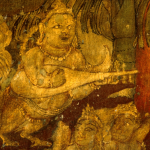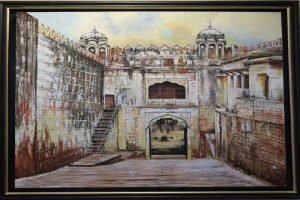Hinduism is an Indian religion and dharma, or way of life. It is the world’s third-largest religion, with over 1.25 billion followers, or 15–16% of the global population, known as Hindus.
Hinduism or Sanatan Dharma is the earth’s oldest religion, in keeping with many scholars, with a foundation and customs dating back over 6,000 years. Today, with about 900 million followers, Hinduism is the third-greatest religion after Christianity and Islam. Nearly, 95 percent of the world’s Hindus stay in India. Hinduism is distinguished as not a single religion but a compilation of several traditions and philosophies.
Hinduism accepts multiple spiritual ideas. The reason why it’s sometimes cited as a “way of life” or a “family of religions,” as against one organized religion.
Most sorts of Sanatan Dharma are monotheist, which suggests they worship one deity, referred to as “Brahman,” while recognizing other gods and goddesses at an equivalent time. Followers believe there are multiple paths to attain their god.
Hindus believe the doctrines of Samsara (the constant cycle of life, death, and reincarnation), karma (the universal law of cause and effect), and Moksha (The Ultimate salvation)
One of the most important ideas of Hinduism is “atman,” or the presumption of the soul. This philosophy holds that living creatures have a soul, and they’re all a part of the supreme soul. The target is to comprehend “Moksha,” or salvation, which ends the cycle of rebirths to become a vicinity of the absolute soul.
One fundamental principle of religion is that the concept that people’s actions and thoughts directly determine their current life and future lives.
Hindus strive to realize dharma, which tends to be the code of living that emphasizes good conduct and morality.
Hindus revere all living creatures and consider the cow the most sacred animal.
Food tends to be the significant part of life for Hindus. Most Hindus don’t consume beef or pork (barring few regions), and many are vegetarians.
Other Indian religions including Buddhism, Sikhism, and Jainism closely identify themselves with Hinduism.
Swastika and Om are the 2 significant symbols used at family shrines and in temples. It symbolizes luck and sacred sound in the ancient religion.
Hindus value many sacred writings as compared to other religions which value just one holy book.
The primary sacred texts, said because the Vedas, were composed around 1500 B.C. This collection of verses and hymns was written in Sanskrit and contains revelations received by ancient saints and sages.
The Vedas are made up of:
- The Rig Veda
- The Samaveda
- Yajurveda
- Atharvaveda
Hindus believe that the Vedas move beyond all time and don’t have a beginning or an end.
The Upanishads, the Bhagavad Gita, 18 Puranas, Ramayana, and Mahabharata also are considered important texts in Hinduism.
















Add Comment